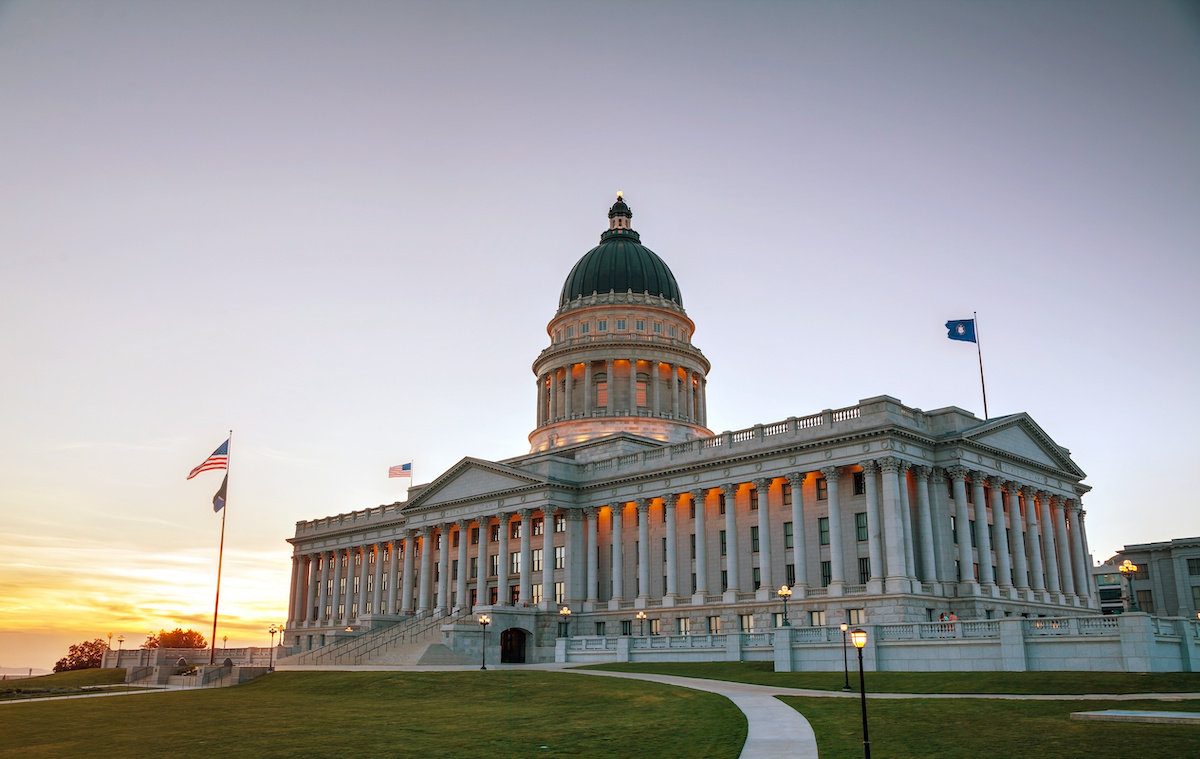The Utah General Assembly began its 2023 legislative session on January 17th. During this session, lawmakers will address a variety of key issues. Republicans have gained seats in both chambers of the legislature, securing a veto-proof supermajority.
Under the all-Republican leadership of Senate President Stuart Adams, House Speaker Brad Wilson, and Governor Spencer Cox, Utah will likely have a lineup of bills reflecting conservative priorities. The packed agenda for the legislative session includes:
Medicaid Expansion
Utah’s Medicaid expansion fund has grown to more than $170 million and is on track to surpass $250 million by next year. The state expanded Medicaid under the Affordable Care Act through a ballot initiative in 2018.
Democratic state Rep. Rosemary Lesser has filed House Bill 84, which extends postpartum Medicaid coverage from Utah’s current two months to the CDC-recommended 12 months. Additionally, House Bill 85 would expand Medicaid coverage eligibility for pregnant women. In his budget proposal, Governor Cox has also included expanded Medicaid for pregnant women and tax credits for unborn children.
Mental Health
Mental Health Treatment: HB 78, sponsored by Rep. Steve Eliason and Sen. Jen Plumb, would require health plans to cover mental health treatment for their enrollees, regardless of whether a provider is in-network.
Crisis Support: HB 66 and HB 29 address the state’s crisis support network. HB 66, sponsored by Rep. Eliason and Sen. Chris H. Wilson, would require the state to establish and administer grants to develop mobile crisis outreach teams and fund up to two behavioral health receiving centers in certain counties. HB 29, sponsored by Rep. Andrew Stoddard, also aims to expand Utah’s crisis support network.
Professional Healthcare Licensing Requirements: HB 159, sponsored by Rep. Norm Thurston, would allow healthcare professionals in other states to provide telehealth services to Utahns. HB 166, sponsored by Rep. Stephanie Gricius and Sen. Michael K. McKell, would remove restrictions on the provision of remote mental health therapy and remote substance use disorder counseling. It also modifies training requirements for licensure as a clinical social worker, marriage and family therapist, and clinical mental health counselor.
Tax Cuts
Tax cuts are a priority for both the Legislature and the governor. In the past five years, Utah legislators have cut taxes by $325 million and this year’s suggested tax cuts continue Utah’s trend of income tax reduction.
Gov. Cox has proposed about $1 billion in tax relief, including $300 million in new, ongoing tax cuts and $574 million in one-time tax relief. He also plans to maintain the expiration of the basic property tax levy freeze, which is scheduled to expire this year. The Utah Taxpayers Association has advocated for an income tax rate cut to 4.5%. However, the governor wants to drop the state’s rate to 4.75%, which would reduce state revenue by $190 million.
Education
Included in Gov. Cox’s $28.4 billion budget is $1.5 billion in educational investments, particularly for teacher pay raises. House Bill 215, titled “Funding for Teacher Salaries and Optional Education Opportunities,” is sponsored by Representative Candice Pierucci and Senator Kirk Cullimore. It establishes the Utah Fits All Scholarship Program, provides funding for the program, and doubles an educator salary adjustment. Teachers could see an increase ranging from $4,200 to $8,400, depending on whether the scholarship program is funded and in effect. The UT-Fits All Scholarship Program would also provide parents with additional funds to support their children’s education.
Water
A key priority for Republican lawmakers is addressing Utah’s water crisis, especially after the Great Salt Lake reached a historically low water level last November. Among the bills legislators are considering:
- Sen. Scott Sandall and Rep. Casey Snider have sponsored SB 76, a bill related to the coordination of planning related to water. This bill would make water suppliers and land use planners consult with one another to understand how the land and water use in their plans could impact the Great Salt Lake and regional water supplies.
- SB 118, also sponsored by Sen. Sandall, addresses incentives to install and maintain water-efficient landscaping. The bill would funnel state funds to water districts to further bolster their turf removal programs.
- Sen. Daniel McCay has proposed eliminating the property taxes on big districts, such as the Weber Basin Water Conservancy District, Jordan Valley Water Conservancy District, and Central Utah Water Conservancy District, to support their water infrastructure projects.
Gov. Cox has also proposed to invest $500 million in water conservation efforts and to push for new policy changes.



